This year the State Audit Office of Hungary (SAO) is continuing its audits on the protection of domestic waters. In its latest audit on the subject, the SAO assessed the complex system of agricultural water management and the sustainability of agricultural water use for the years 2019-2023. The audit found that progress has been made in the efficient use of water resources, but that further improvements are needed, particularly in view of the consequences of climate change on water resources.
World Water Day, held on March 22, aims to raise awareness of the importance of clean water that is available for all, and the endangerment of freshwater resources. Since 2022, the State Audit Office of Hungary has considered the conservation of natural values and the support of a sustainable economy, as well as the key element of all these, sustainable water management, as priority areas.
In recent years, the SAO has carried out several audits and analyses focusing on the state of our domestic waters and responsible water management. The SAO audited the implementation of the objectives of sustainable water management, as set out in the National Water Strategy, including the assessment of freshwater management and wastewater treatment. In 2024, the SAO also coordinated a comprehensive international audit on this topic in cooperation with the SAIs of five countries. Currently, the effectiveness of measures to reduce industrial water pollution is being audited.
The audit, which has just been completed, assessed another aspect of the implementation of the National Water Strategy, the complex system of agricultural water management, including the strategic framework, the characteristics of sectoral governance, the use of public and EU funds available for irrigation development, the sustainability of agricultural water use and the situation of water storage in Hungary.
Changing weather patterns and irregular rainfall have increased the area affected by drought in Hungary. Therefore, the efficient use of our country’s water resources, and water retention are of particular importance for the competitiveness of agriculture.
Between 2019 and 2023, the size of irrigated areas increased by 27.5%, and the amount of water used by 35.9%. The increase in the ratio of irrigated areas has contributed to the increase in the competitiveness of the agricultural sector, while the efficient use of available water resources and water retention measures can further improve the competitiveness of the agricultural sector.
The SAO found that during the audited period, public infrastructure developments were planned in line with water demand, but not with long-term sustainability in mind. The priority budget allocation for irrigation development planned until 2030 was only available for two years, so longer-term sector development objectives were not ensured.
The total amount of subsidies granted for irrigation development at the end of July 2024 was HUF 188.6 billion, of which payments amounted to HUF 60.4 billion. The funds were used to improve irrigation on farms and efficient water use. The price policy applied mainly supported the expansion of irrigated areas. The agricultural water tariffs, reduced, then taken over by the state after the drought of 2022, could not ensure the return on the costs of water services, which poses a risk to long-term sustainability.
Unauthorised extraction of water from underground sources averaged a water volume of 133.6 million m3 per year between 2013 and 2018, representing 7.0% of the water volume of Lake Balaton or 81% of Lake Tisza. Previous surveys have estimated that the number of illegal agricultural wells can reach 100,000. At the same time, the lack of information on illegal extraction has also hindered water resource management planning.
Based on the results of the audit, the SAO made recommendations for the long-term maintenance and development – while taking sustainability aspects into account – of the water infrastructure providing water services to state agriculture, for the measures needed to reduce illegal water extraction and for the precise definition of the nature of the public tasks related to the provision of water services to agriculture.
The SAO also recommended that, in addition to agricultural subsidies, sector leaders should take steps to increase water storage and encourage activities related to water retention.
The full report (in Hungarian) is available here.

